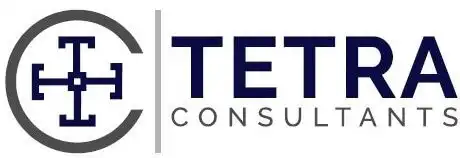Introduction to the types of business entities in Canada

Contact Us
The registration process of a company in Canada is rather straightforward and it can be done online. However, before doing so, it is important to understand the different types of companies in Canada as well as their tax implications, advantages and disadvantages. In this article, our team at Tetra Consultants has introduced the different types of business entities in Canada so you can make a more informed decision on the corporate entity you would like to proceed with, once you decide to register company in Canada.
Types of business entities in Canada:
- Sole Proprietorship
- Partnership
- General Partnership
- Limited Partnership
- Corporation
- Co-operative
- Branch Office
Sole Proprietorship
- A sole proprietorship is the simplest form of business structure where the business is owned by a single person of any nationality. It can be set up easily and is the most inexpensive option. Tax reporting is also simple as it is exempted from corporate tax. However, personal income taxes still apply. This is done by the filing of the T1 return. There may also be the requirement to register for the goods and services tax/harmonized sales tax (GST/HST) if taxable supplies are provided in the business.
- Since it is not a separate legal entity, there is unlimited liability where the owner will be liable for all debts, losses or legal action taken against the business. Moreover, it can be more difficult to raise capital via debt or equity.
Partnership
- Similar to sole proprietorship, a partnership shares the same benefits such as exemption from corporate tax. Instead of an individual, there will be two or more partners in a partnership.
- Income tax on its operating results and the filing of an annual income tax return are not required. Instead, each partner will have to include a share of the partnership income or loss on a personal, corporate, or trust income tax return. In addition, there is the requirement that one of the partners will have to file financial statements.
- There is no requirement of minimum paid-up capital.
- There may also be the requirement to register for the goods and services tax/harmonized sales tax (GST/HST) if taxable supplies are provided in the business.
General Partnership
- The general partnership can be formed without any written declaration of the partnership. This applies to the common law provinces which are all provinces except Quebec.
- Whereas in Quebec, a partnership is formed by a contract whereby details such as the activities and profit sharing have to be stated.
- All partners will face unlimited liability where they will be liable for all debts, losses or legal action taken against the business.
Limited Partnership
- The limited partnership is a hybrid between both a limited liability company and a general partnership. It consists of at least one general partner and any number of limited partners. General partners are given the entitlement to manage the affairs of the partnership and are faced with unlimited liability. Whereas limited partners are not allowed to manage and are only faced with limited liability which is the amount of capital contributed.
Corporation
- Corporation, also known as a Limited Liability Company, requires at least one director. This is the most popular incorporation among foreign investors. Minimally, 25 percent of the directors of a corporation must be Canadian residents. In the case of fewer than four directors, at least one of them must be a Canadian resident. In addition, ownership restrictions apply for certain sectors – namely airlines, telecommunications, book retailing, video or film distribution where a majority of directors will have to be a resident of Canada.
- A corporation is a separate legal entity where the shareholder and directors are not liable for debts, losses or legal action taken against the business. Furthermore, it is easier to raise capital via debt or equity.
- Corporations are subjected to the corporate tax rate where they would have to file T2 Corporation Income Tax Return.
- Corporations are also required to prepare financial statements annually in compliance with the requirements of the Not-for-profit Corporations (NFP) Act.
- Generally, there are 2 types of corporation registration namely – federal incorporation and provincial/territorial incorporation.
- Federal incorporation provides the business with increased business name protection and the right to operate throughout Canada. Whereas provincial/territorial incorporation only allows the operation of the business in that jurisdiction without any name protection outside of the province or territory.
- Despite the lower registration cost for a Federal Corporation, the annual fees for a Federal Corporation may be higher as stricter filing and extra-provincial licenses are required.
Co-operative
- It is owned and controlled by an association of individuals who wishes to satisfy common needs such as access to products or services, sale of their products or services, or employment.
- Co-operative incorporation requires at least 3 people. Minimally, 25 percent of the directors of a corporation must be Canadian residents. In the case of fewer than four directors, at least one of them must be a Canadian resident. In addition, less than 20% should be elected by investment shareholders, also known as members who do not use the products.
Branch Office
- Opening of a 100% foreign-owned branch office does not have any requirement of a Canada resident director. It is not a separate entity from its parent company and thus the parent company is liable for the debts and obligations of the Canadian operation.
- The branch offices are able to enjoy certain tax advantages. Furthermore, the application of extra-provincial licenses is straightforward and inexpensive.
Business Registration Process in Canada:
The registration process of business in Canada is relatively straightforward and you can register a business in Canada online. The steps of the how to register business in Canada are as follows:
Step 1: Planning of your business idea
Step 2: Choosing a suitable corporate entity
Step 3: Reserving of the company name and registration through Corporations Canada which is an online filing system
Step 4: Corporate bank account opening
Step 5: Obtaining a business number, licenses and permits
Step 6: Staying compliant with financial reporting and tax requirements
Conclusion:
Through this article, you would have learned the 6 different types of business entities in Canada. If you are unsure of types of business entities in Canada suit your business the best, you may wish to engage Tetra Consultants. With Tetra Consultants by your side, the registration process of your business in Canada will be smooth and hassle-free. Our comprehensive service package includes planning and strategizing with our clients to select a suitable business entity, completing the registration process, obtaining required licenses, opening a corporate bank account, and ensuring your compliance with the government regulations.
Contact us to find out more about Canada company registration and our dedicated and experienced team will revert within the next 24 hours.
Tetra Consultants
Tetra Consultants is the consulting firm that works as your advisor and trusted partner in your business expansion. We tell our clients what they need to know, instead of what they want to hear. Most importantly, we are known for being a one-stop solution for our valued clients. Contact us now at enquiry@tetraconsultants.com for a non-obligatory free consultation. Our team of experts will be in touch with you within the next 24 hours.





